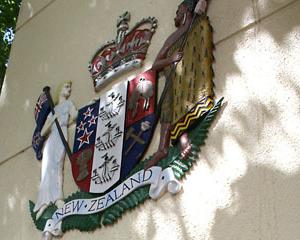The burgeoning demand for food parcels had put pressure on the foodbank's food and household supplies, leaving shelves bare, Mr Banks said.
The soaring demand for food parcels is the worst he has experienced in his 17 years working for the organisation.
The foodbank was giving out between five to six food parcels a day on average, he said.
"It's [demand] way up on what we've done before. I've never seen it this busy," Mr Banks said.
The service had not seen any signs the economic recession might be lifting.
In fact, the opposite was true, he said.
People needing help were no longer limited to those on benefits but increasing numbers of middle and low-income earners could not make ends meet, he said.
"The bulk of them [clients] are earning, but everything has got ahead of them," he said.
"The people we are seeing are not bad budgeters - they can't afford to be," he said.
One of the main reasons people could not stretch their pay to cover all expenses was that incomes had not risen significantly but other costs including electricity, groceries and rents had risen sharply, he said.
Some people managed to make their pay stretch until they had an emergency such as a car breaking down, or appliances needing repairs, then they could no longer manage, he said.
"It's been an absolute eye-opener for us."
Salvation Army assistant community worker Kaye Byron said there had been a number of people who had moved to the district seeking cheaper housing and employment, and while they might have got a job they sometimes had to wait two weeks before they were paid.
Mrs Byron said the price of fruit and vegetables was "outrageous".
The Salvation Army runs cooking classes and encourages people to grow their own vegetables in a bid to lower food bills and encourage healthy eating.
Nationally, the Salvation Army handed out 12,145 food parcels in the three months up to June - up 40 per cent on the same period last year.
Forty new households were going to the organisation for food each week, meaning the organisation was feeding a record 1000-plus families weekly, a release from the Salvation Army stated.
Gore Budget Advice co-ordinator Jenny Buchanan agreed with Mr Banks, saying while there had been some positive news for the district with the announcement that Ravensdown and Solid Energy were investigating the setting up of a multi-billion dollar lignite-to-fertiliser plant, that would be some years away and people needed a financial boost now.
"We have to survive now," Mrs Buchanan said.
Southland was slow to feel the effects of the economic recession, but it would be slow to come out of it, she said.
This time of the year was normally difficult for some people as the district's meat-processing plants were not at full capacity and shearers did not have much work because of lambing.
However, this year that had been compounded by the economic depression, she said.
Budget Advice was seeing more people with large debts and increased numbers of wage earners who were in financial trouble, she said.
Among reasons were skyrocketing living costs.
"Power [price] is ridiculous," Mrs Buchanan said.
Some people Budget Advice was helping had "enormous electricity accounts, she said.
While August and part of September had been mild, the weather had taken a turn for the worst resulting increased fuel use.
"But what can you do when it's cold? [Some] people can't afford to get another load of wood," she said.












